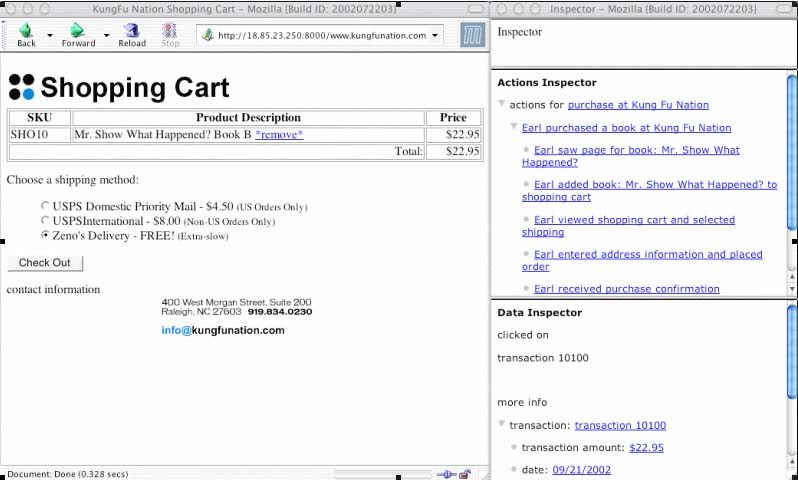

One of the biggest unaddressed challenges for the digital economy is what to do when electronic transactions go wrong. Currently, consumers are frustrated by interminable phone menus and long delays to problem resolution. Companies are frustrated by the high cost of providing quality customer service. We believe that many simple problems, such as mistyped numbers or lost orders, could be easily diagnosed if users were supplied with end-user debugging tools, analogous to tools for software debugging. These tools can show the history of actions and data, and provide assistance for keeping track of and testing hypotheses. We present Woodstein, a software agent that tracks user interaction with e-commerce Web sites in a browser, and relates the browsing events to a high-level model of complex, multi-step processes such as purchases or account transfers. Woodstein explains action steps and data in an understandable form, visualizes action history, and aids in exploration of possible hypotheses for the causes of errors.
New! A video demonstration of Woodstein (AVI Format, 1000 x 768 screen size, 9 minutes, 67 MB)
A "walkthrough" of a Woodstein scenario with screen shots
Papers:
Supporting User Hypotheses in Problem Diagnosis on the Web and Elsewhere
Earl Wagner and Henry Lieberman
ACM Conference on Intelligent User Interfaces, Funchal, Portugal, January 2004
Earl Wagner's Masters' Thesis [4 MB, 150 pages, PDF]
Personalized Presentation of Policies and Processes
Earl Wagner and Henry Lieberman
to appear in the book, Designing Personalized User Experiences for eCommerce:
Theory, Methods, and Research,
Clare-Marie Karat, Jan Blom, and John Karat, eds., 2004
An abridged version of the following paper appears in:
End-User Debugging for Electronic Commerce
Henry Lieberman and Earl Wagner
ACM Conference on Intelligent User Interfaces, Miami Beach, January 2003